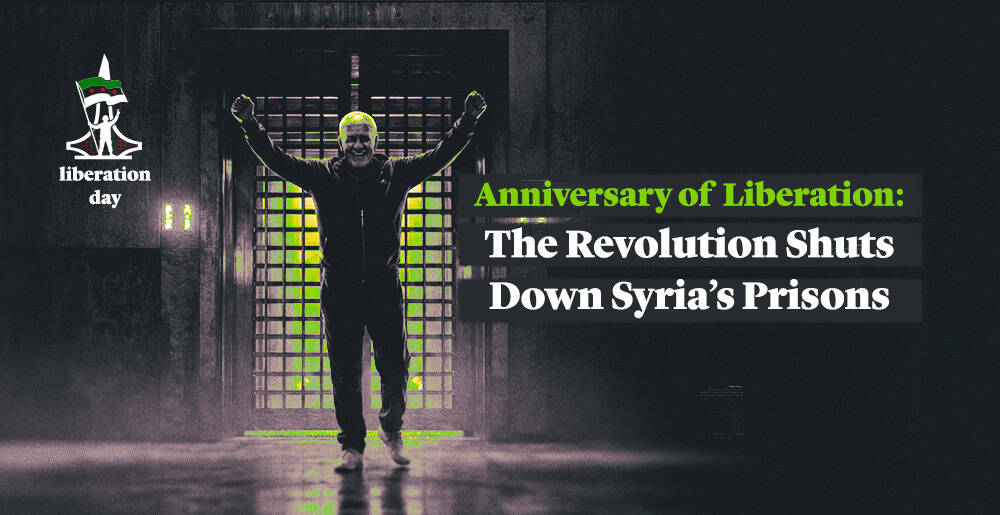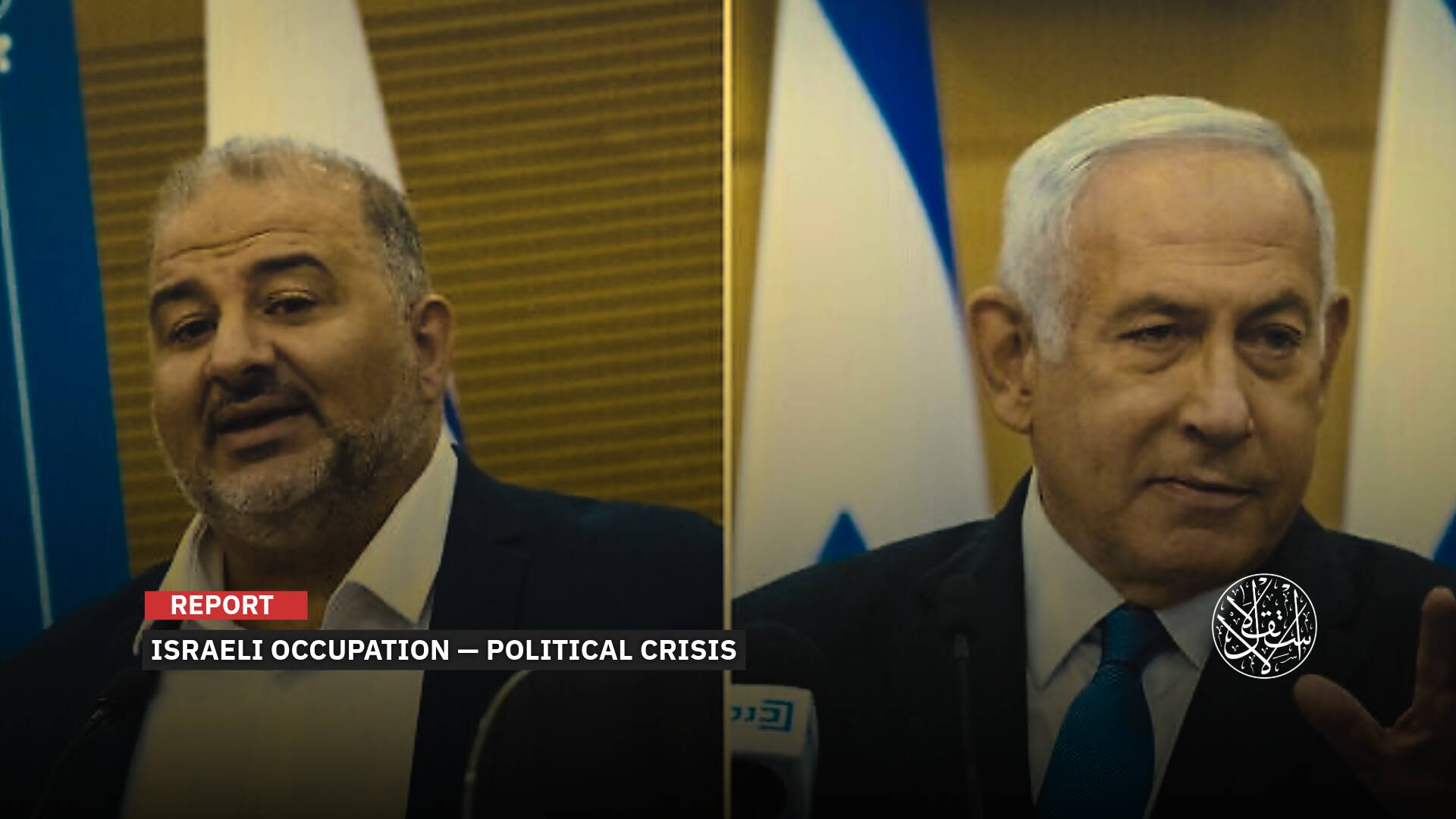‘Israel's’ Military Expansion in Syria Sparks Concerns Over Occupation and Stability

“Netanyahu’s gotten us into endless wars.”
The rapid collapse of Bashar al-Assad's regime marked the bloody end of a chapter in Syria's war against its people, but it also heralded the beginning of Israeli entrenchment in a fractured country still grappling with the scars of decades of brutal rule.
Following al-Assad's fall on December 8, 2024, “Israel” moved swiftly, pushing deep into the borders, initially framing it as a "temporary defensive measure to safeguard its security."
Yet, as its plans unfold, concerns are growing over the potential for a prolonged occupation.
Advanced Plans
“Israel” is reportedly planning to establish two zones of control and influence, allowing it to operate freely within Syrian territory, amid concerns over the new administration led by Ahmed al-Sharaa (Abu Mohammad al-Julani).
According to unnamed Israeli officials quoted by Yedioth Ahronoth and reported by Anadolu Agency, the Israeli military aims to maintain an operational buffer zone 15 kilometers inside Syrian territory "to prevent attacks on the occupied Golan Heights."
The plan also includes the creation of a 60-kilometer-wide area under Israeli intelligence surveillance "to thwart potential threats."
The officials justified these measures by expressing a lack of trust in the new Syrian administration and criticized Western nations for their approach, describing their actions as “naive and dangerous.”

According to Al-Estiklal, a senior, unnamed official said, "The United States, the UK, and Germany are rushing to embrace al-Sharaa, whom we view as a dangerous individual."
"The West is deliberately ignoring the threat posed by al-Sharaa, while neighboring Arab countries are fully aware of the risks and are sounding the alarm," he continued.
The official also expressed frustration over the recent American decision to offer a $10 million reward for information leading to al-Sharaa's capture, alongside easing sanctions on Syria.
Another official confirmed that “Israel” had "prevented Iran from gaining a foothold in Syria" and vowed not to allow Hamas or Islamic Jihad to establish a presence there.
Since the Syrian opposition ousted Bashar al-Assad on December 8, “Israel” has intensified its airstrikes on Syria, violating the country’s sovereignty.
It has also unilaterally terminated the 1974 disengagement agreement with Syria and deployed forces in the demilitarized buffer zone in the occupied Golan Heights.
"This area, which has been under a buffer zone agreement for nearly 50 years as part of the 1974 disengagement agreement, has collapsed with Syrian soldiers abandoning their positions," Israeli Prime Minister Benjamin Netanyahu stated.
Israeli Occupation Forces have also occupied Jabal al-Sheikh (Mount Hermon), which overlooks the occupied Palestinian territories, Syria, Lebanon, and Jordan, raising questions about whether “Tel Aviv” will withdraw from this strategic military site.
From atop the mountain, Netanyahu declared, "Israel will remain here on the Syrian border until a different arrangement is reached."
In line with its plans to expand its occupation of Syrian territory, Israeli Occupation Forces and bulldozers recently advanced toward the Bada'a area near Damascus, marking a new occupation of land added to the Golan Heights, which “Israel” has controlled for years in the southwest of the country.
The advancing Israeli Occupation Forces began digging and creating dirt roads from the occupied Palestinian border towards the Driaate area, where agricultural land was destroyed using bulldozers, rendering it unusable.
On January 15, the Israeli military announced it had seized 3,300 weapons from Syrian territory after al-Assad's regime fell, including tanks, anti-tank weapons, ammunition, and surveillance equipment.
While “Israel” claims its presence is temporary, officials have hinted at the need to maintain influence in Syria for the foreseeable future, as Israeli Occupation Forces edge closer to Damascus.
Previously, “Israel” preferred the continuation of al-Assad’s regime, viewing it as a "useful player" that had not fired a single shot at the Golan during his 24 years in power. Now, it is grappling with uncertainty over the new Syrian leadership.
“Israel” is escalating tensions in the region as it develops its plans for Syria, seeking international support following the inauguration of U.S. President-elect Donald Trump on January 20.
The Partition of Syria
More than just territorial incursions and border occupations, discussions are underway within Israeli official circles regarding the potential partition of Syria into "cantons."
On January 9, “Defense Minister Israel Katz chaired a small ministerial meeting, preceding an upcoming discussion by Prime Minister Benjamin Netanyahu, which focused on Turkish involvement in Syria,” according to information obtained by Israel Hayom.
“The cabinet deliberations covered evolving situations in Syria, particularly addressing concerns regarding de facto leader, the jihadi-linked revolutionary Abu Mohammad al-Julani, and the safety of Druze and Kurdish minority populations in the region,” Israel Hayom reported.
“In an effort to enhance regional stability, Minister of Energy and Infrastructure Eli Cohen proposed convening an international conference focused on Syria. Cohen emphasized that the primary objective is securing Israel's northern border while enabling active defense measures against threats posed by [opposition] organizations operating outside the framework of existing force separation agreements.”
“The discussions included consideration of a previously explored initiative – which top political and security officials have been examining since the collapse of Bashar Assad's regime – proposing the division of Syria into provincial regions (cantons) to safeguard the security and rights of all Syrian ethnic groups.”
The stated goal of this plan is "to protect the security and rights of all Syrian ethnic groups," as “Israel” fears the growing influence of Turkiye in Syria, particularly through its efforts to expel separatist Kurdish groups.

Israel Hayom reported that “Tel Aviv” also aims to prevent Iran and its militias from establishing a foothold in Syria, a justification that now draws significant ridicule after the change in administration and the expulsion of Tehran and Hezbollah, al-Assad’s allies, from the country.
Minister Eli Cohen proposed that this initiative be examined during the proposed conference, although no date or further details have been revealed.
However, the newspaper suggests that the primary challenge is that any initiative linked to “Israel” is likely to face significant resistance within Syria, "necessitating the secrecy of these discussions."
Against this backdrop, Israeli officials at all levels have acknowledged that the scenario of Israeli withdrawal remains distant in light of the new Syrian situation.
Since al-Assad's fall, many parties, including the new Syrian administration and Turkiye, have become wary of the potential division of Syria, through “Israel's” support for Kurdish armed groups in the northeast of the country.
“Israel” has long hinted at backing the creation of a Kurdish state along Turkiye’s border to balance both Iranian and Turkish influence.
According to the website The Media Line, "The latest developments in Syria, which have essentially left the country up for grabs, have Turkey and Israel both putting boots on the ground, each in different areas."
"There is a chance of a future military confrontation between Israel and Turkiye," the website reported.
On January 6, Erdogan declared that Turkiye would not allow the partition of Syria and would take necessary actions if it sensed any threat of its fragmentation.
He also indicated that the end of the Kurdish militants in Syria was imminent, stressing that there was no place for terrorism, and those who support terrorists would be buried with their weapons.
Hinting at a potential military intervention against Kurdish units in Syria, Erdogan said, "If the threat intensifies, we can intervene suddenly, in a single night [...] we have the capability to do so."
On January 15, Erdogan reiterated that "Starting with Israel, the forces attacking Syrian territories must immediately put an end to their aggressive actions. Otherwise, the consequences will have a negative impact on everyone [...] Together with our Syrian brothers, we will crush the heads of ISIS (Daesh), the YPG, and other terrorist organizations in a short time."
Meanwhile, Ahmed al-Sharaa stated, "We are negotiating with the SDF [Syrian Democratic Forces] to resolve the crisis in northeast Syria."
In a televised interview at the end of 2024, al-Sharaa emphasized, "Kurds are an integral part of the Syrian fabric," stressing that there will be “no division of Syria in any form.”
What’s Next?
“Israel’s” decision to take swift military action reflects its concerns about the possibility of surprise attacks, similar to those that triggered the 1973 war and the 2023 Gaza attack, as claimed by The New York Times on January 11.
Israeli Foreign Minister Gideon Sa'ar stated in January, "Israel is closely monitoring the situation in Syria, and will not jeopardize its own security. We will not allow another Oct. 7 on any front," referring to Operation al-Aqsa Flood.
The new Syrian leadership has criticized Israeli military movements but has not taken any practical steps, as it focuses on restoring internal security and establishing a new system.

France and several Arab countries have described “Israel’s” incursions as violations of a ceasefire that has lasted for decades, urging it to withdraw.
Egypt accused “Israel” of "exploiting the current instability in Syria to expand its regional control and impose new facts on the ground."
Israeli officials have stated that they will not withdraw until "new arrangements" are in place along the border.
Given Syria's chaotic internal situation, such arrangements could take months or even longer, potentially leading to the development of Israeli plans for a prolonged occupation.
The new U.S. administration under President Donald Trump has not remained distant from these developments.
Israeli Channel 12 revealed that it had sent clear messages to “Israel” concerning Syria.
The Trump administration urged “Israel” to "avoid unnecessary escalation or statements that could lead to conflicts in the region, especially during the transition period leading up to his inauguration," according to the channel on January 13.
Trump's aides emphasized that the incoming administration aims to stabilize the Middle East, focusing on maintaining peace between “Israel” and Lebanon and ensuring the continuation of the ceasefire.
They added that Trump stressed during talks with Israeli officials that he had no intention of entering a new war in the early days of his presidency, preferring to focus on addressing domestic issues in the U.S.
Trump’s determination to maintain the Gaza ceasefire before his inauguration on January 20 reflects part of his strategy for regional stability, especially with hints of his dissatisfaction with Netanyahu’s escalation policies.
In January, Trump posted a controversial video on his social media platform, Truth Social, featuring economist Jeffrey Sachs sharply criticizing Netanyahu, accusing him of manipulating U.S. foreign policy and orchestrating "endless wars" in the Middle East.
Sachs stated, "Netanyahu’s gotten us into endless wars and because of the power of all of this in U.S. politics, he’s gotten his way," while using profane language to describe the Israeli prime minister.
The Institute for National Security Studies at “Tel Aviv” University noted on January 12 that developments in Syria pose both new challenges and potential opportunities for “Israel.”
It explained that the uncertainty surrounding the new regime's policies requires “Israel” to maintain a high level of military readiness to address emerging threats, unclear intentions from key players—including Turkiye—and the potential re-establishment of the Iran-Hezbollah axis within Syria.
However, the institute also emphasized that Ahmed al-Sharaa’s restrained rhetoric towards “Israel,” the presence of moderate elements, the weakening of the "resistance axis" led by Iran, and Russia’s diminished influence in Syria could create opportunities for diplomatic engagement.
"Israel should prepare for both scenarios: a stabilized Syria led by a moderate and effective regime or a Syria that serves as a breeding ground for extremist actors that could threaten Israel’s security."
It concluded that in order to handle both possibilities, “Israel” should adopt a policy that encourages positive developments by participating in efforts to stabilize the region.
Sources
- Israeli officials weigh conference to divide Syria into cantons
- Israel plans a "sphere of influence" in Syria, and is stunned: "The West is blind, making pilgrimages to Al-Julani's rhythm." [Hebrew]
- Erdogan: We will not allow the division of Syria under any pretext. [Arabic]
- Israel’s Campaign in Syrian Border Area Prompts Fears It Plans to Stay
- A New Era in Syria: Winners, Losers, and Implications for Israel
- Erdogan’s Policies in Syria Bring Turkey and Israel Closer to Confrontation











